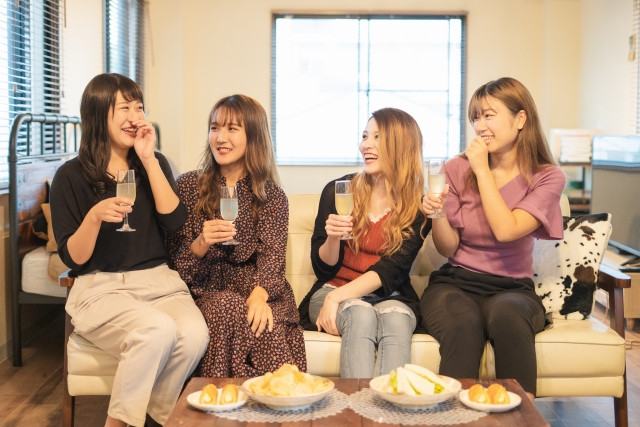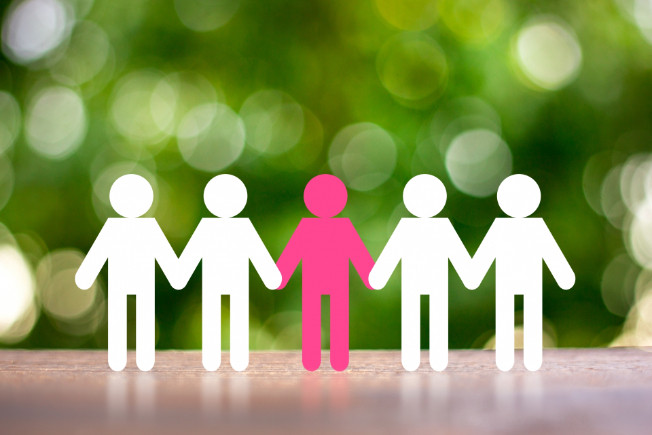There's so many ways to say thank you in Japanese. How about when you're giving a speech or presentation, or when you want to thank a friend who's there for you? Here are some things to know when thanking someone for their time and presence in Japanese.
Table of Contents
- How to say thank you in Japanese
- Thank you for listening in Japanese - in personal or casual conversation
- Thank you for listening in Japanese - in formal or business conversation
- Thank you for listening in Japense - at the end of a speech or presentation
- Other "Thank You" Situations in Japanese
How to Say Thank you in Japanese

The most common translation of thank you in Japanese is "ありがとう (Arigatou)". You often hear and use this in conversations with people. This is also a casual form. To be a little bit more polite, you can use "どうもありがとう (doumo arigatou)" or the even more polite "ありがとうございました (arigatou gozaimashita)" which translates to "thank you very much."
For more specifics, please check out our detailed article covering all forms of thank you in Japanese, from formal to casual to slang and to ones tailored for specific situations!
Arigatou and more: How to Say Thank You in Japanese in All Types of Situations
Now let’s get to phrases for “Thank you for listening.”
Writer's Pick
Thank you for listening in Japanese - in personal or casual conversation

We all have our own share of trouble, and sometimes the best way to lighten the burden is to simply talk about it to someone. Even if they don't say anything, it's often great to just get it off our chest and have someone listen.
Afterwards we get everything out, it's good to say
聞いてくれてありがとう
(Kiite kurete arigatou)
most commonly said to close friends and family members. It's the most simple and straightforward form of "Thank you for listening."
If they give you advice or you ask them for their opinion after sharing what's on your mind, you could also say
相談に乗ってくれてありがとう。
(Soudan ni notte kurete arigatou)
This means, "Thanks for giving me advice." or "Thanks for lending me an ear."
These two examples are the most commonly used. Afterwards, if you feel better, you can even say "(○○に話して) すっきりした!(((Person's name) ni hanashite) Sukkiri shita!)" which means you feel lighter or you feel like you got a load off your chest (after talking to (person's name)).
It's also kind to offer to be there for them in return.
(私も/俺も) いつでも話聞くよ。
(Watashi mo / Ore mo) Itsudemo hanashi kikuyo
or
(私も/俺も) いつでも相談に乗るよ。
(Watashi mo / Ore mo) Itsudemo soudan ni noruyo.
Both mean "I'm here to listen anytime." with the latter also implying that you might give advice as well!
Thank you for listening in Japanese - in formal or business conversation
If you're close with a coworker that you can drop a lot of the formalities, you can use the person who took his time to hear you is a colleague or someone who has a more formal relationship with you such as your superior/boss, it is better to say
聞いていただき ありがとうございました。
(Kiite itadaki arigatou gozaimashita)
or the more formal
お聞きいただき ありがとうございます。
(Okiki itadaki arigatou gozaimasu)
or
相談に乗っていただき ありがとうございました。
(Soudan ni notte itadaki arigatou gozaimashita)
or the more formal
ご相談に乗っていただき ありがとうございます。
(Gosoudan ni notte itadaki arigatou gozaimasu.)
It shows appreciation while still properly recognizing the relationship between individuals and showing the proper respect. The latter more formal version should always be used to people much higher up like your boss, and in e-mails.
(Note that what you share at work should be issues related to work. Unless you have a very close relationship with your coworkers, we often don't share personal issues at work. And if you are in the rare situations where you do and can, it's that much more important to show the proper appreciation for it!)
Thank you for listening in Japanese - at the end of a speech or presentation
We wouldn't use the above two examples at the end of a speech or presentation. Instead we use the very specific
ご清聴ありがとうございました。
(goseichou arigatou gozaimashita)
or “Thank you very much for your attention”. This is commonly used in business presentations and speeches, as it both signals the end of what you have to say, and gives a very formal and professional impression to those listening. Remember to bow afterwards, as it comes as a set as the final greeting.
Note: When writing it out, please be careful that you want to use ご清聴 and not ご静聴. They look very similar and are pronounced the same, but the former is what you want to use at the end of the speech. 静聴 means to listen quietly, so it may be said at the beginning of a show or when things get noisy. But if you use this one at the end of a presentation, such as on your last slide (although this is quite rarely included in slides and just said verbally), you would be specifically telling the audience "Thank you for listening quietly."
To express overall gratitude, please use ご清聴.
Other "Thank You" Situations in Japanese

Now that you've learned how to say thank you for listening in Japanese, how about learning some other ways to show appreciation in different situations?
Take a look at some of our other articles:
- Saying Thank you in Japanese
- How to say You're Welcome in Japanese
- Thank you for coming (and thank you for inviting me) in Japanese
- Writing a thank you card in Japanese
- No thank you in Japanese
We hope these are helpful for you!

































